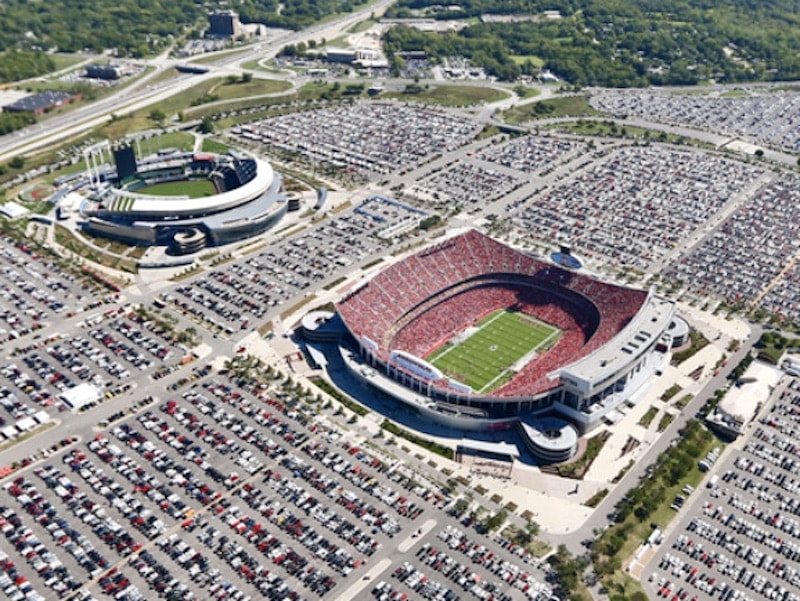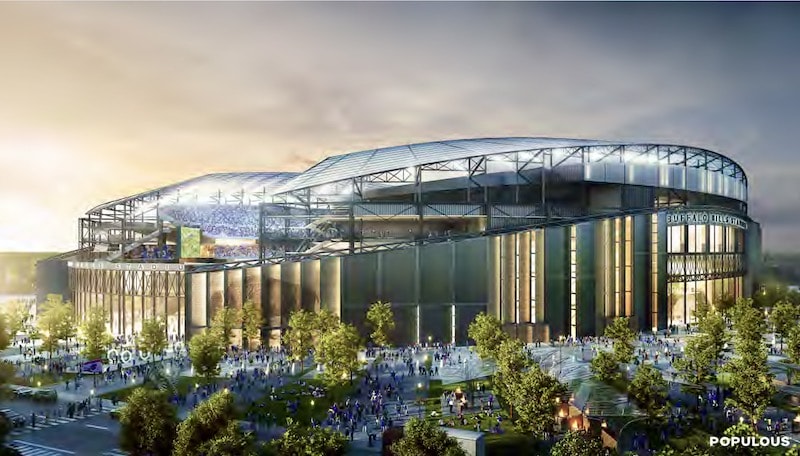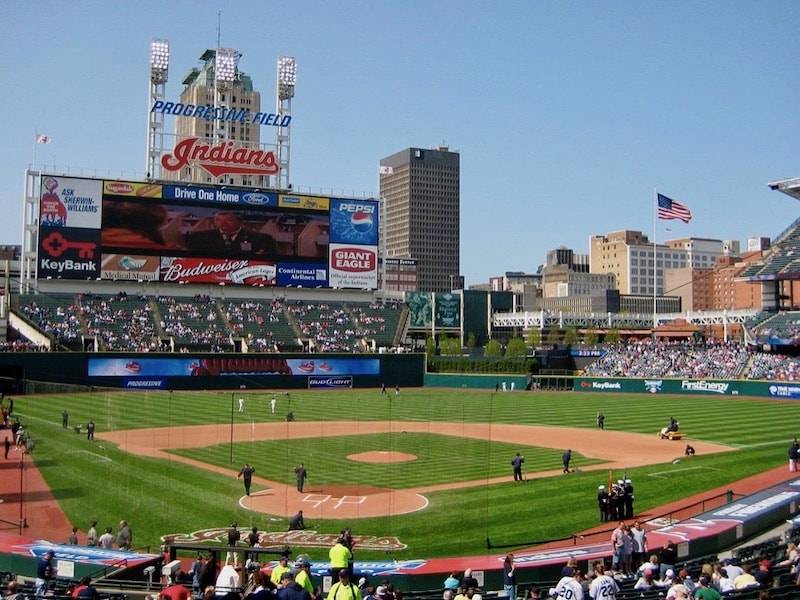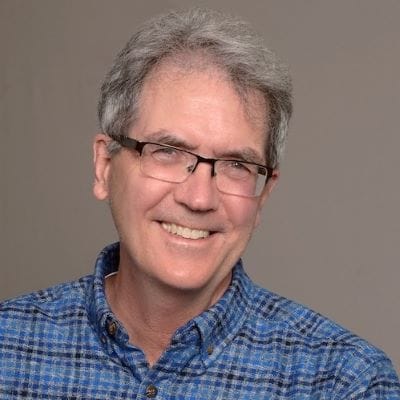After 50 Years at Truman, Royals and Chiefs Looking at Amicable Split

Published April 25th, 2022 at 11:30 AM
By Kevin Collison
After a half century being a couple at the Truman Sports Complex, the Chiefs and Royals are leaning toward an amicable breakup, at least that’s the takeaway team executives offered last week.
“The Chiefs and the Royals are out there together, the collaboration is great and we appreciate all of that,” Brooks Sherman, Royals senior vice president, said at the annual luncheon of the Downtown Council.
“This has been 50 years. There’s no reason why we’re not as successful the next 50 years and go the proper direction for both teams and the city, and it will come out well.”
Brooks, along with Mark Donovan, president of the Chiefs, and several other sports leaders participated in a panel discussion on how “Sports & Entertainment Destinations Activate Downtowns.”
For the Royals, Sherman was enthusiastic about the prospect of bringing the team downtown.
‘We think baseball belongs downtown,” he said. “When you look around the country, we think it contributes to making downtowns a place to live, work and play.”
Donovan even gave the Royals a gentle push out the Truman Sports Complex door.
‘This is not a Chiefs statement, this is a Mark Donovan statement, baseball downtown is where it belongs,” he said.

The Chiefs are looking around the country at new NFL facilities including the $1.4 billion stadium recently announced by the Buffalo Bills. More than half the cost, $850 million, will come from the state and county. (Rendering by Populous)
But while the interest in the Royals coming downtown has been apparent since owner John Sherman took over the team three years ago, the potential future of the Chiefs at Arrowhead has been less clear.
Three weeks ago, Donovan ignited a Border War flareup when he said the team was listening to offers from developers on the Kansas side of the metro.
At the Downtown Council luncheon, he sought to tap down speculation, saying the Chiefs were a long ways from making a decision.
“The perspective I want to give to everybody is, take a breath, we have a lot of work to do and we’re doing our best to do our best for all of us,” he said.
Donovan said the team is currently in the middle of a half-million dollar study to see how it can keep Arrowhead in top shape through the end of its lease in 2031,
“Once we’ve done that study, what could we add to this building to take it 50 more years” the Chiefs executive asked, “and is that even possible and what’s that cost and what are the advantages and disadvantages?”
He emphasized the decisions the Royals and Chiefs are taking about their facility future are generational in nature.
“We’re part of the group making franchise decisions that will effect our franchise and this community for the next 50 years,” Donavan said.
“Clark (Hunt) sat down with a bunch of us a few weeks ago and said, ‘just so everyone knows, people in this room are making the biggest decisions in the history of this franchise. Don’t screw it up.'”

John Sherman, the owner of the Royals, is familiar with downtown ballparks through his previous ownership stake in the Cleveland Indians. It’s downtown ballpark, Progressive Field, opened in 1994. (Image from Creative Commons)
Donovan acknowledged that if the Royals do go downtown, it provides new opportunities for the Chiefs at Truman. It’s anticipated the Chiefs would raze Kauffman Stadium and redevelop the area as an entertainment district.
“We’re working closely with Brooks and John (Sherman) and their team, Donovan said. “We’re aware of what they’re doing, not just because it frees up more options for us at Arrowhead.
“There’ll have to be a study on what it would be like to build new and you have to look at where else could you go then. All those are on the table.
“The reality is we have a long way to go, we’re way early in the process.”
He added that remaining at Arrowhead might have the inside track for sentimental reasons.
“Arrowhead is special, “Donovan said. “It’s special to this community, it’s special to its fan base, it’s special to the Hunt family.
“When you think about the family, that’s their dad’s building and that’s going to play a factor in all this, a big factor.”
As for the Royals, Sherman said the team believes a downtown ballpark would create new jobs, promote downtown becoming a more walkable, urban destination and boost public transit.
He cited Cleveland’s Progressive Field, the downtown home of its ball club, as an example of how a ballpark contributes to downtowns. John Sherman was formerly a part owner of the team.
“When you look around the country at cities that have put a downtown stadium in, we have experience in Cleveland that was great, and we could see that up close and personal,” he said.
“When you look at those cities and see what they’ve done, there’s not a single one of them that regrets putting that stadium downtown.”
In other matters, the Downtown Council annual luncheon also honored several people for their service and involvement in downtown:
–The J. Phillip Kirk Jr. Award went to Vincent Dasta, former head of DST Realty.
–The Urban Hero Awards went to KC Art on the Block: A Black Lives Matter Project; Jason Parson, president and CEO of Parson + Associates; Elizabeth Rosin, owner of Rosin Preservation; Michael Smith, restauranteur, and Marqueia Watson, executive director of the Greater KC Coalition to End Homelessness.
–The Harvey Fried Award went to Kim Hert and Sheila Tatum, Downtown Community Improvement District Ambassadors.


